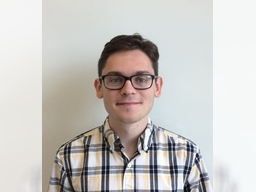PhD Defense: Cory Nunn
Location
Physics : 401
Date & Time
April 18, 2023, 2:30 pm – 5:00 pm
Description
ADVISOR: Dr. Todd Pittman
TITLE: Quantum State Engineering with Zero-Photon Subtraction
ABSTRACT: Quantum communication requires stable transmission of light with various nonclassical properties, such as entanglement or non-gaussianity, for all kinds of discrete- and continuous-variable quantum information processing. At the same time, preserving the coherence of these exotic nonclassical states is extremely difficult over long distances. Clever techniques for quantum state engineering are thus required to both prepare quantum light, and to ensure its protection against loss and decoherence. To this end, conditional measurements enable a myriad of methods for engineering quantum optical states. Among these is zero-photon subtraction (ZPS), which was first proposed as part of a protocol to suppress decoherence effects in a lossy channel. In this process, a quantum state enters one input port of a beamsplitter, and successful detection of zero photons heralds a noiselessly attenuated output state with new properties. In this thesis, we present a series of experimental and theoretical investigations of ZPS, demonstrating its capability as a quantum state engineering tool. First, we demonstrate techniques for heralding on zero photons with realistic single-photon detectors, illustrating the effects of dark counts and inefficiency in this type of conditional measurement. Next, we apply this to a systematic demonstration of ZPS for a wide variety of input states, showing how the degree of noiseless attenuation is linked to the incoming photon statistics. This is followed by two theoretical investigations into the radically altered photon statistics of the outgoing states. The first shows how ZPS can transform the sub- or super-Poissonian character of quantum states, and the second details changes in higher-order statistics that allow for more in-depth characterization. This research advances the development of ZPS and related techniques for future quantum communication applications.
TITLE: Quantum State Engineering with Zero-Photon Subtraction
ABSTRACT: Quantum communication requires stable transmission of light with various nonclassical properties, such as entanglement or non-gaussianity, for all kinds of discrete- and continuous-variable quantum information processing. At the same time, preserving the coherence of these exotic nonclassical states is extremely difficult over long distances. Clever techniques for quantum state engineering are thus required to both prepare quantum light, and to ensure its protection against loss and decoherence. To this end, conditional measurements enable a myriad of methods for engineering quantum optical states. Among these is zero-photon subtraction (ZPS), which was first proposed as part of a protocol to suppress decoherence effects in a lossy channel. In this process, a quantum state enters one input port of a beamsplitter, and successful detection of zero photons heralds a noiselessly attenuated output state with new properties. In this thesis, we present a series of experimental and theoretical investigations of ZPS, demonstrating its capability as a quantum state engineering tool. First, we demonstrate techniques for heralding on zero photons with realistic single-photon detectors, illustrating the effects of dark counts and inefficiency in this type of conditional measurement. Next, we apply this to a systematic demonstration of ZPS for a wide variety of input states, showing how the degree of noiseless attenuation is linked to the incoming photon statistics. This is followed by two theoretical investigations into the radically altered photon statistics of the outgoing states. The first shows how ZPS can transform the sub- or super-Poissonian character of quantum states, and the second details changes in higher-order statistics that allow for more in-depth characterization. This research advances the development of ZPS and related techniques for future quantum communication applications.
